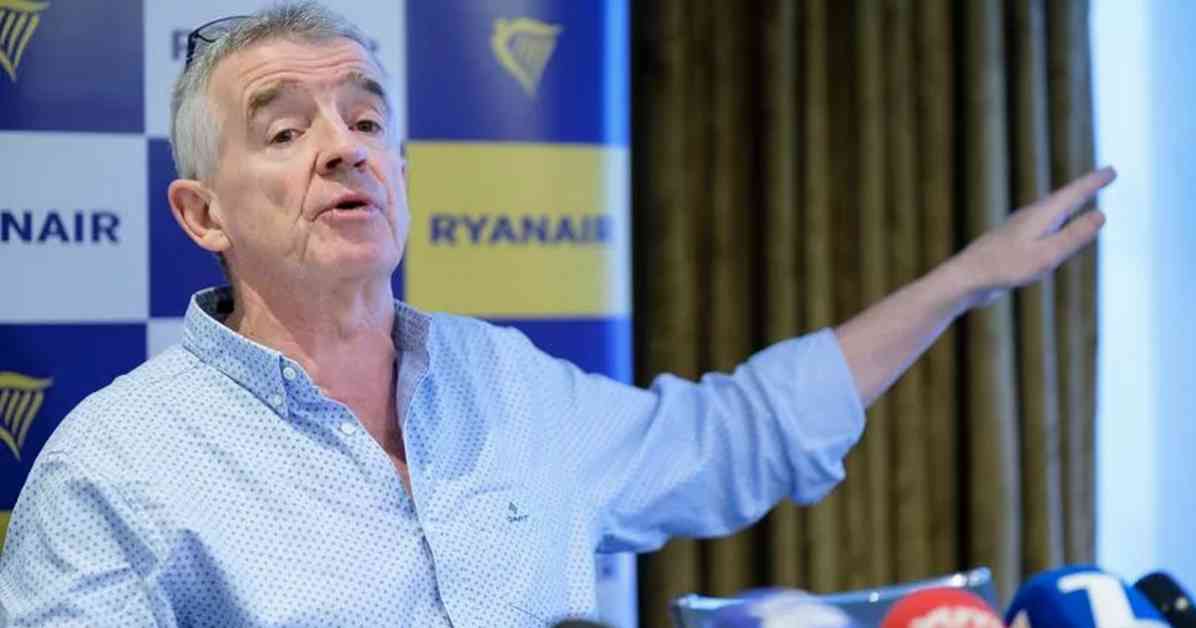Ryanair CEO Michael O’Leary has taken a bold stance on the issue of alcohol consumption at airports, calling for a two-drink limit for passengers at airport bars. This proposal comes in response to a rise in drink-fuelled violence on flights, with O’Leary questioning why drunk individuals are not allowed to drive but are still permitted to board aircraft.
The CEO’s comments highlight the severity of the situation, noting that attacks on flights are now occurring on a weekly basis. He has urged government agencies across Europe to address the issue and implement measures to cap the amount of alcohol outgoing passengers can consume before boarding planes.
Identifying inebriated passengers at the gate can be challenging for airlines, particularly if they are traveling with others. O’Leary expressed concerns about passengers who may appear sober during boarding but exhibit disruptive behavior once the plane is in the air. This poses a significant safety risk for both passengers and crew members.
In an interview with The Telegraph, O’Leary emphasized the need for action, stating, “We don’t want to begrudge people having a drink. But we don’t allow people to drink-drive, yet we keep putting them up in aircraft at 33,000 feet.” He pointed out that airport bars often serve the relatives of intoxicated passengers, contributing to the problem.
To address this issue, Ryanair has implemented measures such as searching the bags of passengers heading to destinations known for heavy drinking, like Ibiza. O’Leary mentioned that passengers have attempted to bring alcohol on board in disguised containers, highlighting the need for increased vigilance.
The CEO also raised concerns about the changing nature of inebriated behavior, noting that individuals are now mixing alcohol with other substances like tablets and powder. This combination can lead to heightened aggression and difficult situations for airline staff to manage.
Incidents of violence on flights have become more frequent, with passengers engaging in physical altercations and even assaulting flight attendants. O’Leary cited examples of such incidents, including a British holidaymaker convicted of sexually assaulting a flight attendant on a Ryanair flight.
The problem escalates when flights are delayed, as passengers have more time to consume alcohol while waiting at airports. O’Leary stressed the importance of setting limits on alcohol consumption to prevent excessive drinking before boarding.
Despite potential pushback from airport authorities, O’Leary believes that implementing a two-drink limit would not significantly impact profits for bars and restaurants. He called on government agencies to take the issue seriously and enact regulations to ensure the safety and security of passengers and crew members.
In conclusion, the proposal for a two-drink limit at airport bars is a proactive step towards addressing the issue of alcohol-related incidents on flights. By implementing such measures, airlines can enhance passenger safety and create a more secure flying environment for all travelers. It is essential for authorities to collaborate with airlines and airport facilities to enforce these regulations effectively and prevent future incidents of alcohol-fueled violence in the air.












